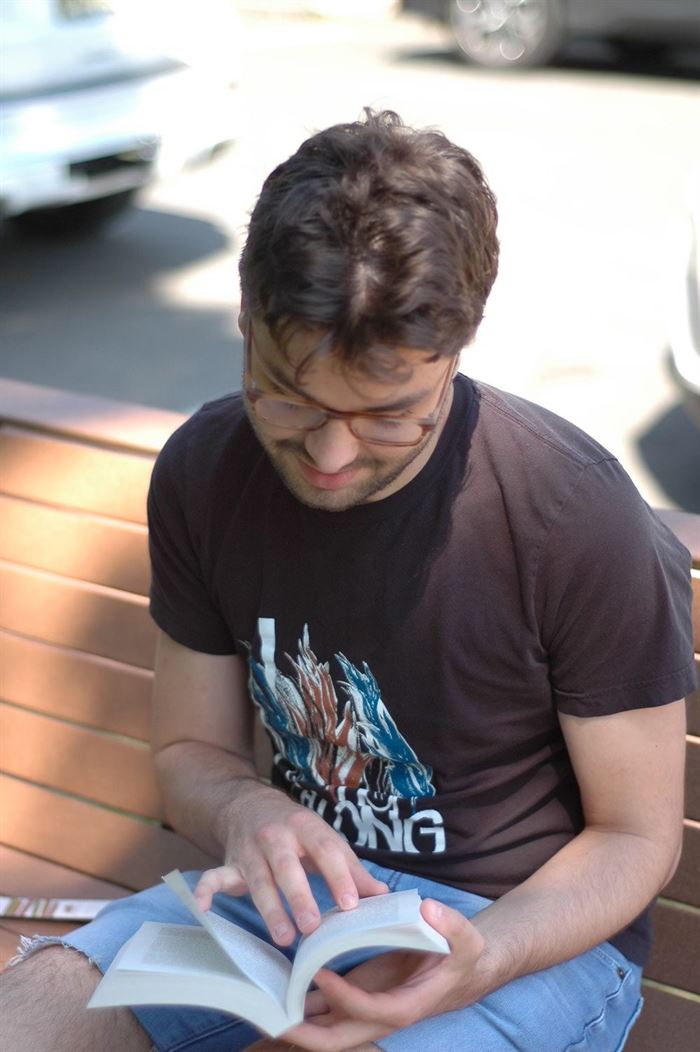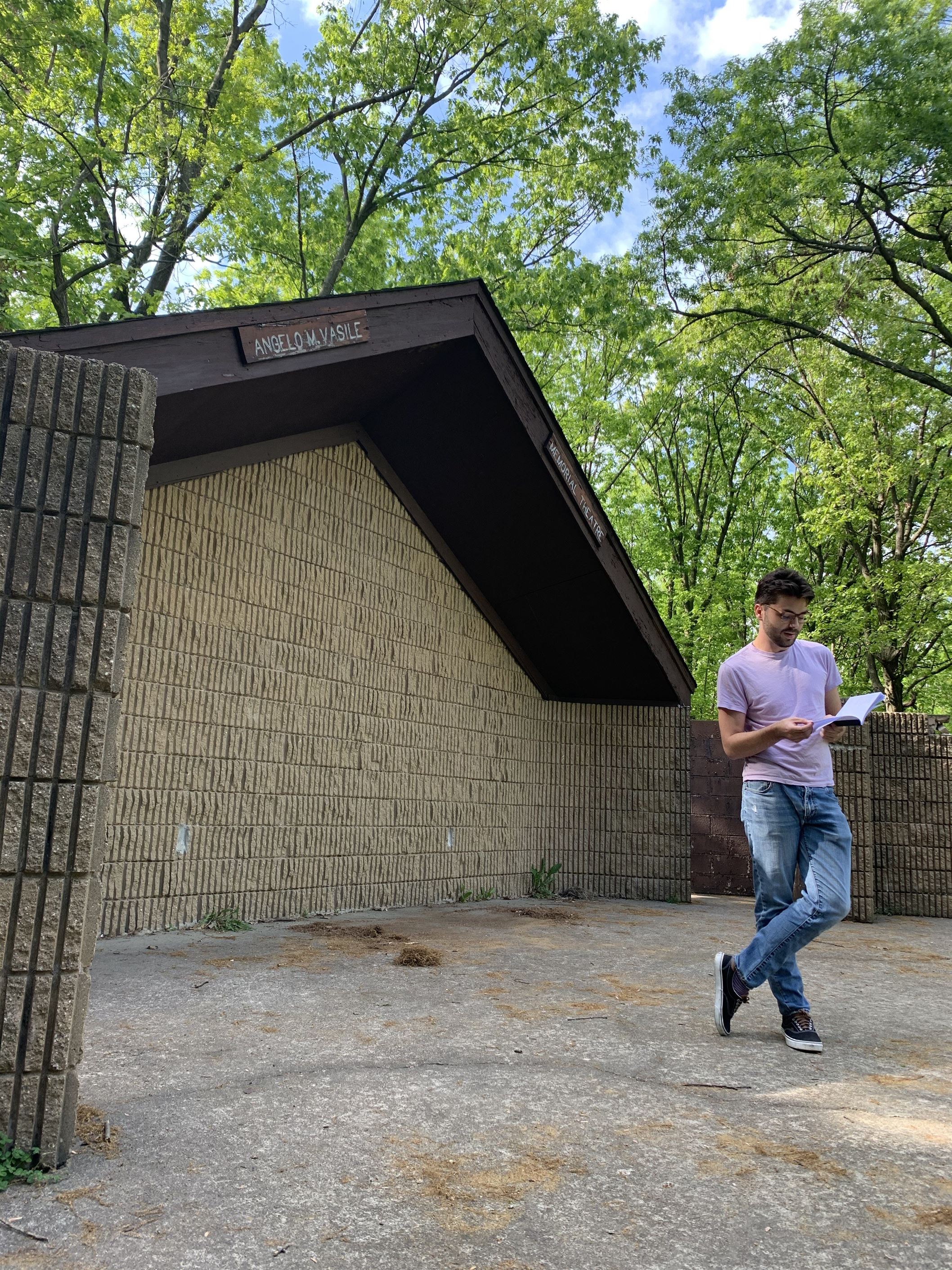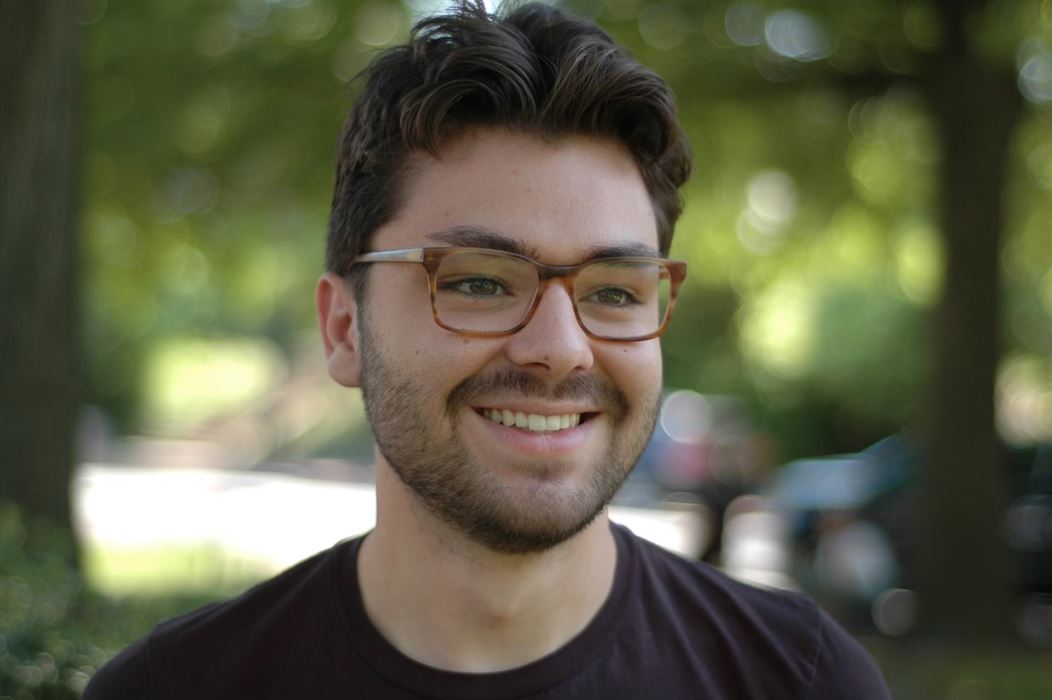As the semester came to a close, the English Department Awards presented Evan Dekens, a senior English major with a double minor in creative writing and film, with three awards.
Dekens won the Creative Nonfiction Award for his piece titled “Things to Remember in the Early Stages of Dying.”
This winning piece is about the coronavirus (COVID-19) pandemic, which Dekens wrote as a way to remember what the experience of the pandemic was like. In his work, he likens the pandemic to a house being built just to later foreclose.
“I didn’t have [‘Things to Remember in the Early Stages of Dying’] in mind for an audience, really,” Dekens said. “I’m just really happy and surprised that people liked [it] because it was just a thing I did during COVID[-19].”
Jeffrey Gonzalez, an English professor who oversaw the awards and also had Dekens in his postwar fiction class and worked with him on his honors thesis in an independent study, expressed his admiration for the student’s ability to create momentum and fluidity in his writing. He also credits Dekens’ talent to write “thematically bold” pieces to his eagerness to read works of challenging writers.
“He’s just an outstanding writer,” Gonzalez said. “A very original writer.”
As far as fiction work goes, his piece “Waste,” which follows shop owner Ruth, won him the Johnny Muller Memorial Scholarship in Fiction. Created by the namesake’s father, this scholarship honors Muller: an outstanding Montclair State University alumnus who passed in a car crash while attending Rutgers-Newark for his Master of Fine Arts in creative writing.

Dekens wrote “Things to Remember in the Early Stages of Dying,” winning him the Creative Nonfiction Award.
Photo courtesy of Evan Dekens
Dr. David Galef, an English professor and head of the creative writing program at Montclair State, was one of the judges for the scholarship. Dekens and Galef crossed paths before when the writer attended Galef’s advanced fiction workshop.
“Evan has good ideas and the ability to dramatize them,” Galef said. “Everything from the arc of a dysfunctional family to the notion of waste in three different directions. Well-drawn characters, vivid scenes, dialogue that moves along the plot: it all fits.”
The final award Dekens won is the Murray Prosky Prize in Irish Literature for his essay about Irish novelist James Joyce titled “The Unfocused Speed of Memories: ‘Penelope,’ Flow, and Conscious Thought.”
Though Dekens won these awards at Montclair State where he started his studies in 2017, his passion for writing began to cultivate long before then.
He began writing after his accidental discovery of William Butler Yeats when he was younger. He was also inspired from reading classics in high school such as “The Great Gatsby,” saying writing excited him in a way that nothing else did.
“I got stuck wanting to do this,” Dekens said. “So I’m sticking with it.”
He went on further to discuss the importance of writing.
“I don’t think anyone has any other way of understanding the things that happen to them or themselves without turning it into some sort of story,” Dekens said. “It’s just an innate thing we do anyway and I was really drawn to the fact people do this in such beautiful, different, varied ways. Fiction is a place where you go to deal with things you don’t and probably never will understand.”

Dekens’ piece, “Waste,” which follows shop owner Ruth, won him the Johnny Muller Memorial Scholarship in Fiction.
Photo courtesy of Evan Dekens
What gets Dekens to start a piece and choose what to work on is random, but often what he is reading or watching at the time has an influence. Once the young writer has an idea, he says starting is the easiest part.
“I’m very good at the first two sentences,” Dekens said. “Then things go downhill from there.”
In retrospect, he starts by first writing the beginning and the end. Once he finishes the rest, he hides the piece away for months before revising it. Dekens mentioned that during his revision phase he will “read it over so many times [he] hate[s] it by the end,” but the satisfaction he feels keeps him going.
“If what you’re doing is working and it’s not pulling teeth and it’s really just coming out, that’s a really cool feeling,” Dekens said. “When something is done it’s also a very good feeling.”
Luke Winnicki, a senior English major and friend of Dekens, is often the first person to read his writing.
“[His writings] have kind of a quiet spectacle,” Winnicki said. “The stories are often introspective and character-driven and observant.”
Dekens noted how lucky he is to have writer friends, especially ones who are able to be honest with him.
“I’ll write something and I’ll show it to [Winnicki],” Dekens said. “He’ll tell me which of it is terrible and I’m just like, ‘thank you, I’ll just delete that.’”
As for Dekens’ future goals, he has a very simple hope.
“I just want to be good,” he said. “I want to write good things that people like and hopefully I like them too.”



